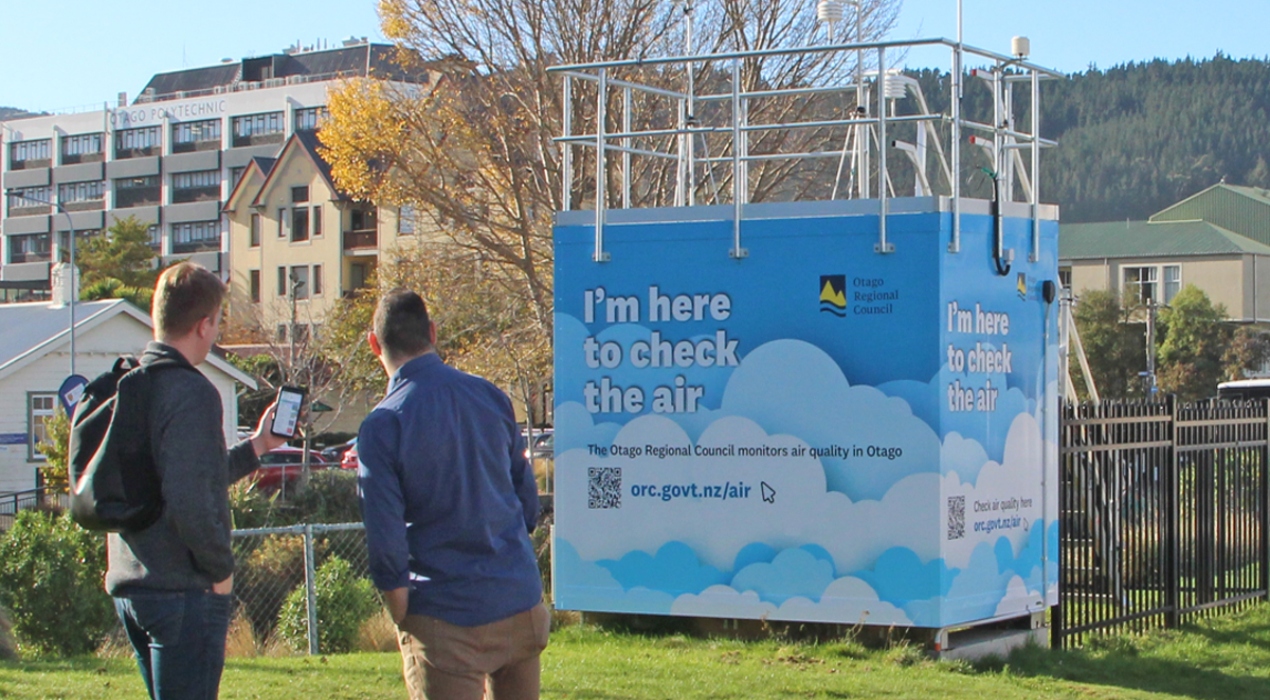
The Otago Regional Council (ORC) has taken measures to upgrade its regional air quality monitoring network, incorporating digital technology to adhere to new air quality guidelines. These efforts are aimed at maintaining compliance with stricter standards, improving air quality in Otago, and safeguarding public health.
Land, Air, Water Aotearoa (LAWA) introduced updated air quality monitoring procedures, which not only compare data to the National Environmental Standards for Air Quality (NESAQ) but also align with the World Health Organisation’s (WHO) more stringent standards. This shift in monitoring protocols underscores the importance of enhancing air quality assessment, and ORC has embraced digital technology to meet these new requirements effectively.
These upgrades primarily focus on monitoring small, airborne solid or liquid particles, specifically PM10 and PM2.5, with diameters smaller than 10 and 2.5 micrometres, respectively. The ORC recognises the significance of tracking these finer particles, which can originate from various sources, including natural ones like pollen and sea salt, and mechanical processes that produce dust.
To bolster its monitoring capabilities, ORC has undergone a series of network upgrades over recent years, installing new instruments at six out of seven monitoring sites. Notably, Mosgiel and Central Dunedin locations have been equipped to monitor both PM10 and PM2.5, allowing for more precise data collection.
Furthermore, ORC has implemented small air quality sensors at various locations, such as streetlights and power poles, to assess air quality more comprehensively. These sensors measure PM2.5 concentrations, particularly from combustion-related sources like wood burners, industry emissions, and traffic.
The ongoing studies and data collection efforts are intended to provide insights into where PM2.5 concentrations are highest and when peak levels occur during the day. The data generated from these sensors will serve as a basis for further investigation into possible sources of PM2.5 and strategies to reduce these levels, ultimately improving air quality.
Additionally, ORC has studied pollutants like nitrogen dioxide (NO2) and sulphur dioxide (SO2) in Central Dunedin. The results of these studies have raised concerns about NO2 concentrations potentially exceeding WHO guidelines, which are more stringent than the National Environmental Standard for Air Quality (NESAQ). This highlights the importance of thorough monitoring and digital data analysis to understand pollutant levels accurately.
To expand its monitoring efforts, ORC has also conducted spatial studies in various regions, including Ōamaru, South Dunedin, Alexandra, Ranfurly, Hawea, Luggate, and Kingston. These studies involve deploying temporary air quality sensors on infrastructure such as streetlights and power poles. The data collected will help identify areas with the highest PM2.5 concentrations and peak times, guiding decisions on permanent air quality monitoring installations.
ORC’s commitment to using digital technology and data analysis to enhance air quality monitoring reflects its dedication to meeting new standards and improving the overall air quality in Otago. Integrating advanced monitoring tools and techniques is a significant step toward safeguarding public health and mitigating the risks associated with air pollution.
As ORC continues to evolve its air quality monitoring network and embrace digital technology, it plays a crucial role in reducing the health risks posed by air pollution in Otago. The shift towards stricter monitoring standards and the utilisation of advanced instruments align with the intent to achieve cleaner and healthier air for the region’s residents.
















